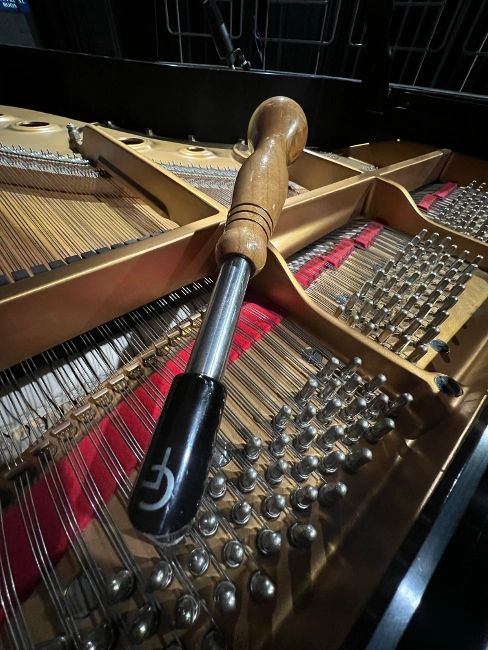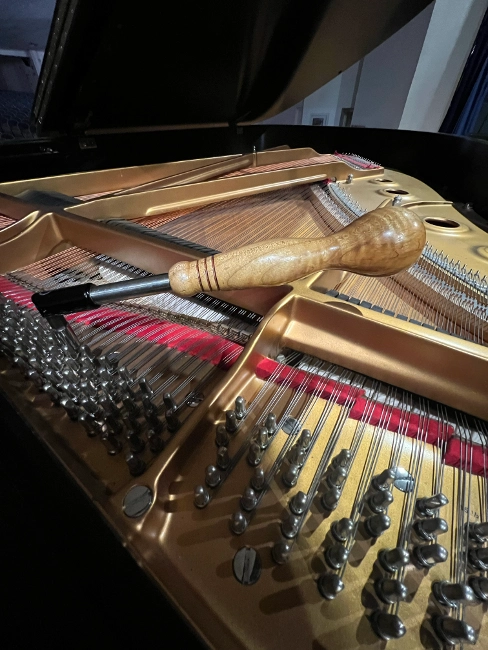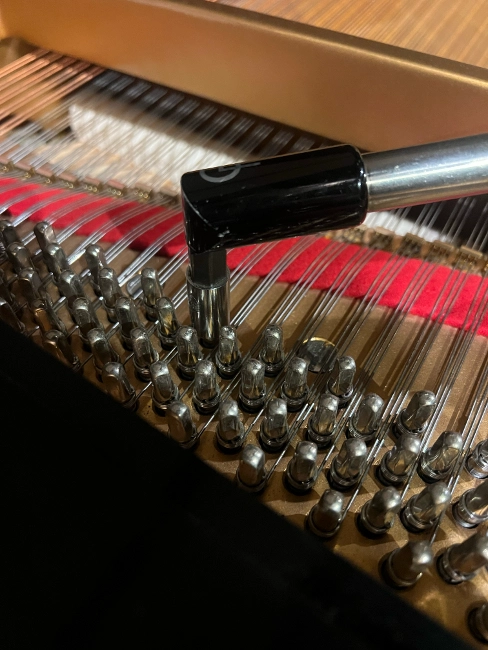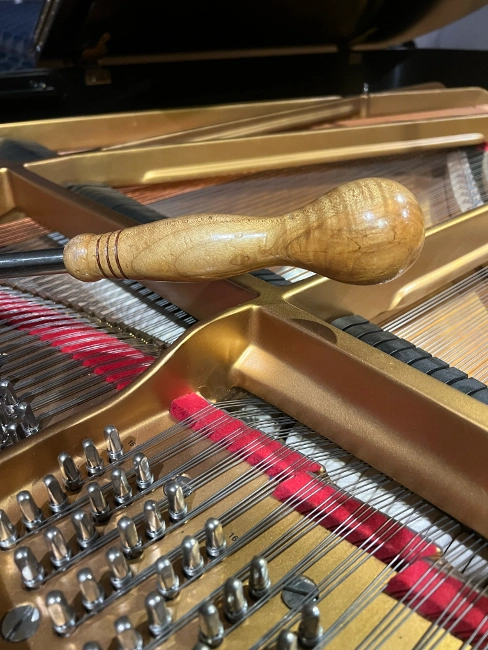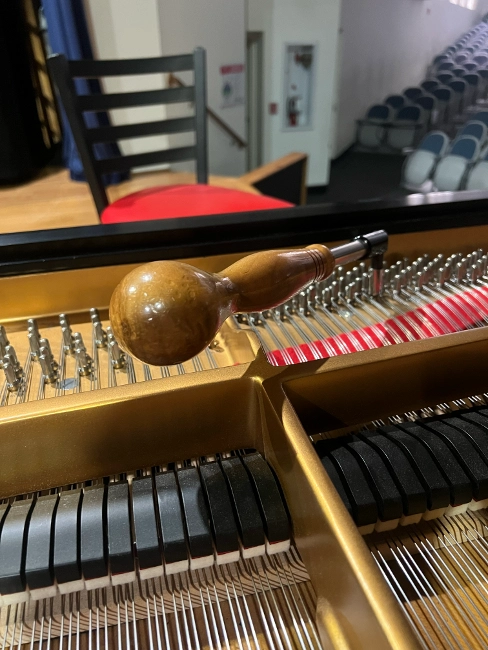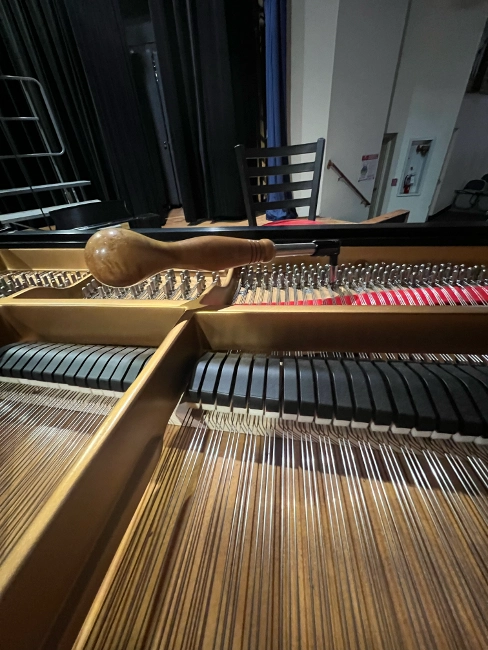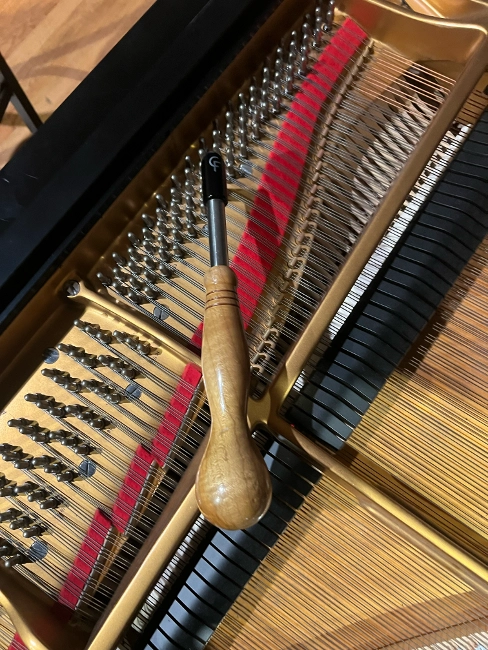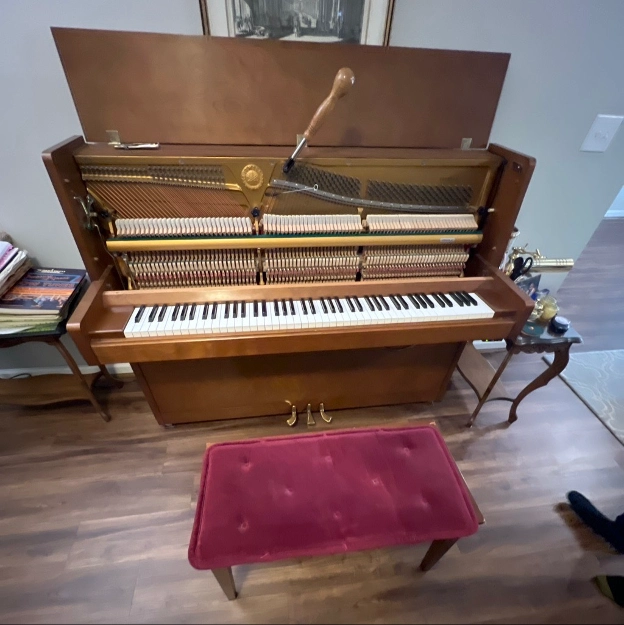Charles Faulk Lever: Piano Tuning Hammer Review
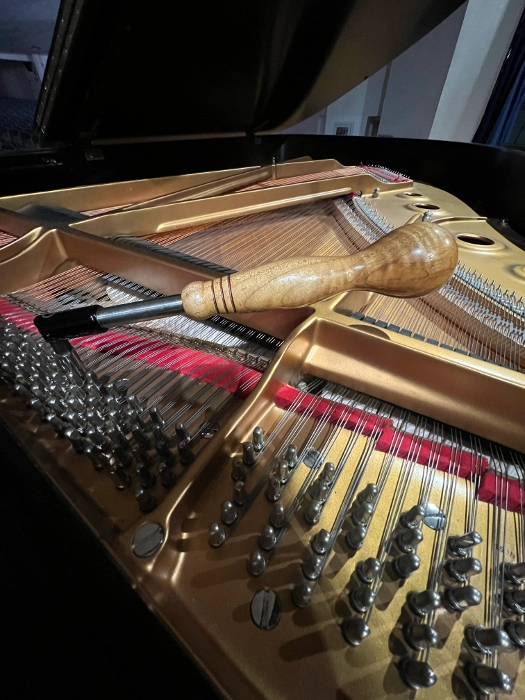
The selection of a new tuning lever is one of the most important decisions you will make as a Piano Technician. After all, this friend will be with you during the majority of work you will complete. Tuning levers are made from many different materials which alone can make the selection process fairly intimidating. Wood, steel, carbon fiber, along with what style tuning tip for your tuning hammer leaves one with so many options for creating the perfect tuning hammer. But don’t worry, creativity is only limited by your imagination. But first, a little about me.
I was fortunate enough to attend North Bennet Street School where our instructors made available some of the best tuning hammers in the industry for us to try over the course of the 9 month program. We also had access to industry professionals that allowed us to ask questions about why they chose the tuning hammers they chose. After trying traditional steel levers, a Jahn lever, a Fujan lever and the ever popular Reyburn lever, (and some others), I came to the conclusion that Charles Faulk levers were the best for me. Since school, I have done additional training at the University of Houston, the Steinway Factory, PTG Meetings and Conferences, sat with seasoned industry professionals, worked for large Universities, and Steinway, Mason & Hamlin, and Yamaha dealers before launching my own piano service company, PianoSmiths. Needless to say, my Faulk tuning hammer has gotten a pretty good workout. Below you will find some of the features of my tuning hammer and what helped me arrive at my decision.
Article written by Matthew Smith @ PianoSmiths.Com
Features
Carbon Fiber Shaft
Western Maple Grip
Watanabe Tuning Tip(s)
12” Length
Buy if
You want a high quality tuning lever at a more friendly price point.
You want a light weight tuning lever that is comfortable to use in both upright and grand applications.
You want a classic design and customizable options that reflect a pragmatic approach to piano tuning.
If you prefer using a wider grip on the handle over a larger round ball at the end of the tuning lever.
Charles Faulk Lever on piano tuning pins
Don’t buy if:
It’s more important to spend a lot on a flashier tuning hammer.
You prefer an extremely light weight or compact design due to travel considerations or tool case size.
Frankly, this is a hard section to list why not to buy a good lever like this…
Pros:
Faulk Hammers get the job done.
Excellent communication and company to work with through the purchasing process.
High Quality construction using industry standard materials.
Reliable, trustworthy, and easy to use.
Cons:
Traditional way of changing the tuning tips which requires an additional tool.
May have to change your angle of approach to the tuning pin due to a lower clearance over the breaks in the piano.
Again, this is a tough section as the hammer has worked really well for me over the past 7 years…
Price
When I purchased my tuning lever in 2018, I paid around $275 plus shipping. Today, the tuning hammers listed on Faulk's website run just shy of $400. This is more than a Levitan tuning lever at $250, but cheaper than a Reyburn lever around $690. This puts the Faulk Tuning Hammer in a solid position of both quality and price.
Is the Faulk lever worth it?
I have found over my 7 years as a piano technician that my Faulk tuning lever has held up extremely well exceeding my expectations from the original purchase. I’ve tried other hammers at convention meetings, and have not been lured away by lighter or maybe “prettier” tuning hammers as my hand tells me what it prefers. I feel connected to the piano and get to experience all of the senses that are needed to create great stable tunings. In short, if I have it to do all over again, I would still choose the Faulk Tuning Lever!
Article written by Matthew Smith @ PianoSmiths.Com
Read Next:
Best Piano Tuning Kit for a Beginner: Review 2024
3 Best Professional Piano Tuning Hammers on Amazon
Xuyiyue Piano Tuning Lever and Tool Kit Review

